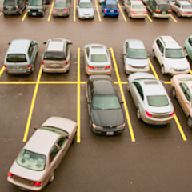Search results
Discover more placesNear Columbus, OH
Refine results for Plastic Products
Plastics are a wide range of synthetic or semi-synthetic materials that use polymers as a main ingredient. Their plasticity makes it possible for plastics to be molded, extruded or pressed into solid objects of various shapes.
Apr 30, 2024 · plastic, polymeric material that has the capability of being molded or shaped, usually by the application of heat and pressure. This property of plasticity, often found in combination with other special properties such as low density, low electrical conductivity, transparency, and toughness, allows plastics to be made into a great variety of ...
Feb 21, 2024 · The world's plastic pollution crisis, explained. Much of the planet is swimming in discarded plastic, which is harming animal and possibly human health. Can it be cleaned up?
Apr 25, 2023 · Read our explainer to find out more about the plastic pollution crisis: Why is plastic pollution such a problem? Affordable, durable and flexible, plastic pervades modern life, appearing in everything from packaging to clothes to beauty products.
Improving the management of plastic waste across the world – especially in poorer countries, where most of the ocean plastics come from – is therefore critical to tackling this problem. On this page, you can find all of our data, visualizations, and writing on plastic pollution.
May 15, 2018 · Plastics Explained, From A to Z. What are microplastics? What about a garbage patch? This glossary helps demystify plastic pollution. By Elizabeth Atalay, Laura Parker, and Heidi Schultz. May...
Oct 19, 2023 · Plastic pollution has become one of the most pressing environmental issues, as rapidly increasing production of disposable plastic products overwhelms the world’s ability to deal with them. Plastic pollution is most visible in less-wealthy Asian and African nations, where garbage collection systems are often inefficient or nonexistent.
May 28, 2024 · Plastic pollution, harmful accumulation of synthetic plastic products in the environment. Plastics are persistent large-scale pollutants, and plastic debris (such as bottles, straws, containers, and plastic wrap) and particulates have been found in many environmental niches, from Mount Everest to the bottom of the sea.
A plastic is a type of synthetic or man-made polymer that is similar to natural resins found in trees and other plants. Polymers are any of various complex organic compounds produced by polymerization—a process in which small molecules combine to make a very large chainlike molecule.
Oct 6, 2020 · Correcting our plastic waste problem requires a fundamental change in thinking about how plastics are made, used, and discarded, two new studies say.




























